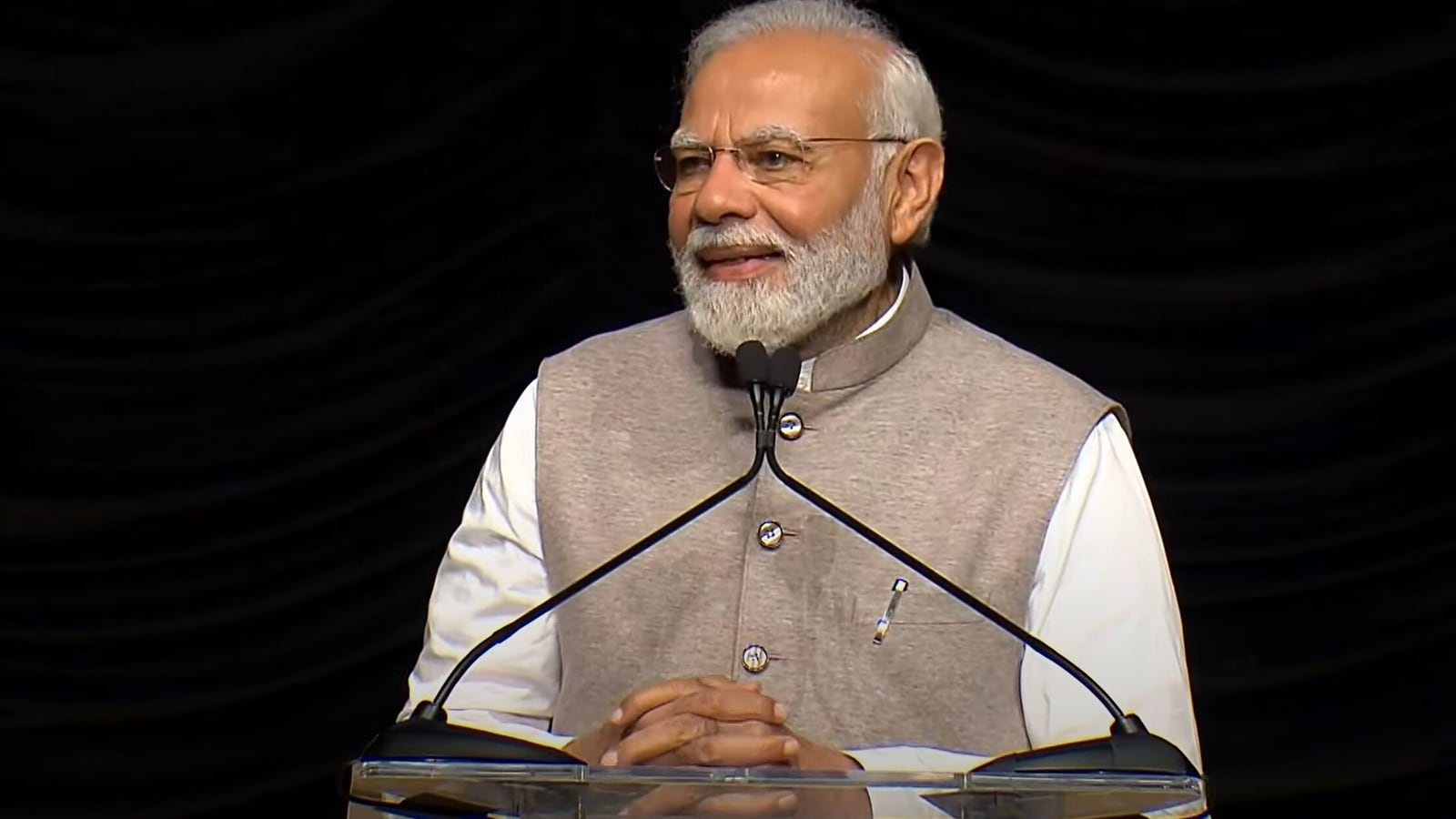
Prime Minister Narendra Modi’s recent visit to the United States has strengthened the ties between the two countries, augmenting his global presence and reinforcing his association with the Diaspora and business leaders.
The Indian Diaspora in countries like the U.S., U.K., and Australia has become a robust and influential community. Modi has been working to win over this community even as Gujarat’s chief minister. He has continued to build strong relationships with them in countries like America, Great Britain, and Australia, which has proven beneficial.
Prime Minister was pleased that he received top honours from Washington. It included a state dinner at the White House, prestigious guest accommodations at the Blair House, and an opportunity to address the U.S. Congress for the second time in nine years.
Modi’s cooperation with the U.S. has increased despite a previous visa denial. It was due to India’s growing economy, strong military, and educated immigrant workforce. The ties have moved from a non-interference policy of Prime Minister Nehru to the present more engaged approach.
Over the decades, the BJP has built a powerful overseas lobby. “The Friends of BJP” is an influential organization in America. From the 60s, the Hindu Swayam Sevak Sangh had been functioning in the U.S. as the Sangh Parivar’s overseas outfit.
During the earlier BJP regime, the Diaspora received increased recognition. The former BJP Prime Minister, Atal Behari Vajpayee, initiated the Pravasi Divas and conferred honours upon Indian Americans. He also appointed an NRI Agnihotri as a roving ambassador. Nevertheless, the U.S. government declined to acknowledge a second envoy.
Modi pampered them by providing many facilities, like a more accessible visa regime and an Overseas Indian card. The Diaspora wants voting rights, but this will take a long time.
Throughout his speeches, including his address to the U.S. Congress, Modi expressed great admiration for Indian Americans. He presented India as a rapidly growing global power. Instilling a sense of national pride in them, he used their support to strengthen his constituency in India.
Indian Americans responded by showing up in large numbers to welcome and interact with Modi. They chanted slogans such as ‘Modi Modi’, ‘Bharat Mata ki Jai’, and ‘Vande Mataram’ upon his arrival in New York. They cheered him during President Biden’s welcome speech on the South Lawn of the White House.
Prime Minister called them “the real strength” of the U.S.-India relationship. “I have come here many times, but today for the first time, the doors of the White House have been opened for the Indian American community in such large numbers,” he replied.
Applauding the Diaspora, Modi said they were “brilliant in every field, not just Spelling Bee,” and have played a significant role in the country’s relationship with America. The Diaspora reciprocated enthusiastically. In 2014, Modi’s meeting at the Madison Square event in New York impressed Americans. Later the “Howdy Modi” rally in Houston surprised President Trump.
Both Biden and Modi acknowledge the political power of the four-million-strong Indian American community. They are the second-largest and fastest-growing community in the U.S. Their votes are crucial in several swing states. In the 2020 elections, 74% of Indian American voters supported Biden, highlighting their importance in the political landscape.
Modi has had the opportunity to meet and interact with three American Presidents – Obama, Trump, and Biden. All three have included more members of the Indian Diaspora in their administrations. Currently, Biden has appointed 130 Indian Americans to key positions. Vice President Kamala Harris and presidential hopeful Nikky Halley are both trailblazers in their own right. Some business leaders are heading over two dozen American companies, including Google chief Sundar Pichai and Microsoft’s Satya Nadella.
India and the United States have strengthened business and defence ties over the past decade, with India becoming a member of international groupings like Quad and G20.
However, in Washington, groups favouring and against Modi came together to either support or protest against him. Modi’s human rights track record has not gone unnoticed. On June 20, 75 U.S. Senators and Members of Congress wrote a letter to President Biden, highlighting concerns over issues such as the “shrinking of political space and the rise of religious intolerance.” Moreover, six lawmakers boycotted Modi’s address to the U.S. Congress.
Despite their differing opinions, Washington and New Delhi agree that the visit was necessary and beneficial for the two countries. Modi acknowledged the success of his visit, stating that he had participated in multiple programs and discussions to enhance the friendship between India and the USA.
The South Block intends to capitalize on the visit’s success and pave the way for the upcoming G20 summit in September in New Delhi. These efforts are expected to enhance the Prime Minister’s reputation both nationally and internationally. (IPA Service)
The post Prime Minister Narendra Modi Focused On Indian Diaspora In A Big Way During US Visit first appeared on IPA Newspack.


